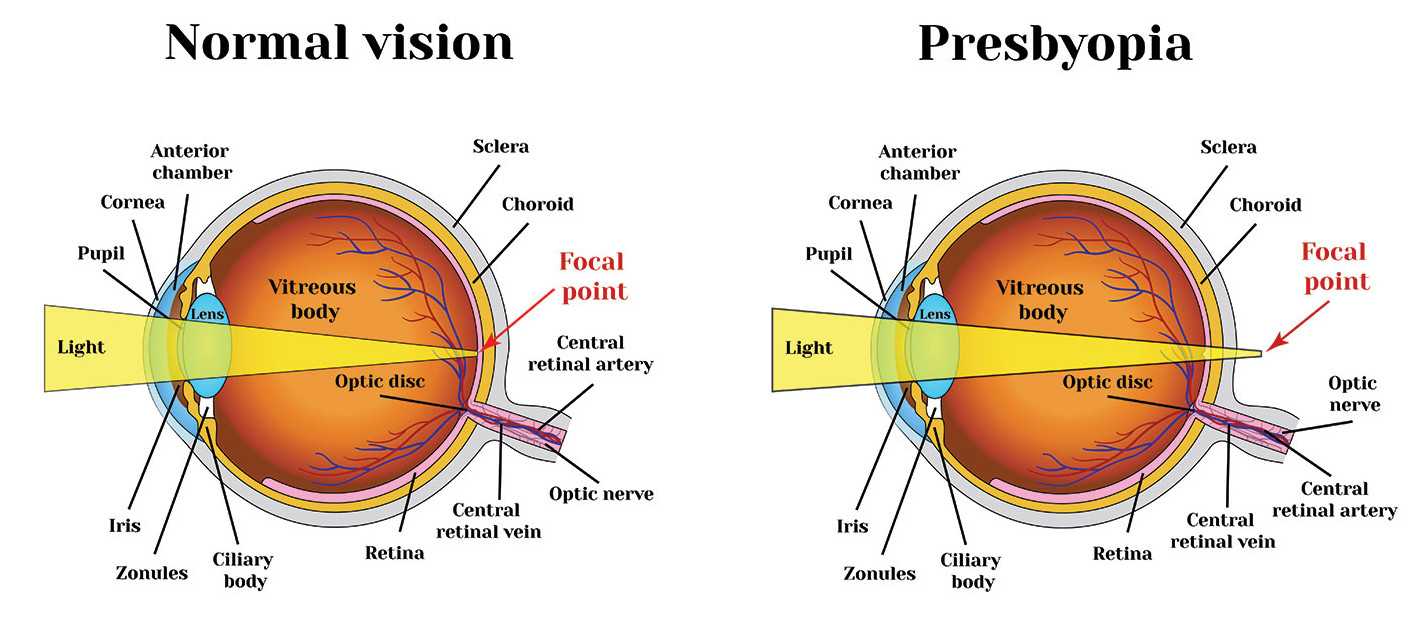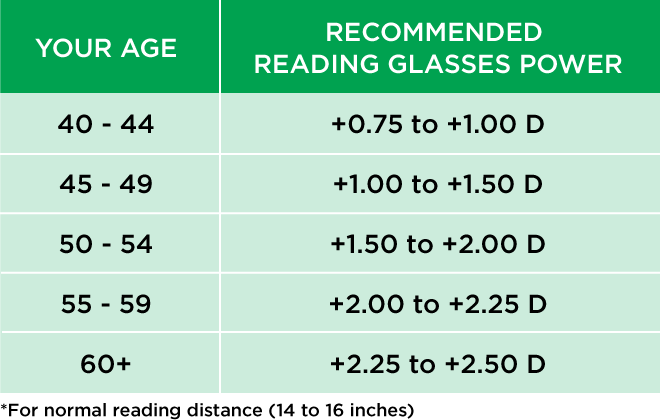- GlassesShop By FrameShop By StyleFeatured












With age comes wisdom, and unfortunately also presbyopia, often identified as age-related farsightedness. If you're finding yourself squinting at the small print or extending your arm to make the content legible, you're likely experiencing presbyopia. But worry not, this article will guide you towards understanding your presbyopia better and how to choose reading glasses of appropriate strength based on your age.
Presbyopia is an age-related vision condition where your eyes gradually lose the ability to see things up close. Luckily, reading glasses cater specifically to overcome presbyopia and exist in various strengths to accommodate your vision's needs based on your age.

The relationship between age and presbyopia is significant. Typically, presbyopia starts around the age of 40 and progresses until the early 60s. As presbyopia is age-induced, your reading glasses strength, denoted as 'adds', needs to be adjusted periodically.
The lens strength you need for your reading glasses is given as a diopter - the higher the diopter, the stronger the lens.
The average age at which people start using reading glasses can vary depending on various factors, including genetics, lifestyle, and overall eye health.
Presbyopia is a natural part of the aging process and affects nearly everyone. It occurs as the lens of the eye loses its flexibility, making it more challenging to focus on close-up objects. As a result, many individuals in their 40s or early 60s find that they need reading glasses to assist with tasks such as reading books, using digital devices, or seeing small print.
It's important to note that the age at which presbyopia develops can vary. Some individuals may experience symptoms earlier, while others may notice changes in their near vision later in life. Additionally, individuals who already have existing vision conditions, such as nearsightedness or farsightedness, may require reading glasses at different times.

Around this age, small text becomes challenging to read, especially in poor lighting. Here, a lens strength of +1.00 to +1.25 diopter can offer clearer vision.
You may find a need for a slightly higher strength. A reading glasses power of +1.50 diopter is optimal for most individuals during this phase.
At this stage, your lens strength will likely need to increase to +1.75 diopter as presbyopia intensifies.
You might need to move up to glasses with a +2.00 to +2.25 strength. Comfort becomes paramount here; glasses offer that with clearer vision.
While presbyopia tends to stabilize around +2.50 diopter, periodic eye check-ups are encouraged to monitor any potential changes.
If you have presbyopia and another refractive error like myopia or astigmatism, bifocal or progressive lenses could be the solution. They incorporate different vision corrections into one pair of glasses - a real game-changer for individuals with varied visual needs.
Choosing the right presbyopia glasses is crucial for your vision and quality of life. This guide serves as a starting point. However, remember, only an eye-care professional can accurately determine your prescription strength. Regular eye examinations are a must, they not only ensure your glasses have the right strength but also help track your overall eye health.
Answer: While you can certainly buy reading glasses, wearing them without experiencing presbyopia symptoms might cause eye strain.
Answer: Presbyopia is a natural part of aging and, currently, there's no proven prevention method.
Answer: Most people start experiencing presbyopia as they reach their 40s, regardless of their pre-existing vision.
Answer: Over-the-counter reading glasses can be a quick fix, however, only prescription glasses can accurately correct your vision.
Answer: It's recommended to have an eye examination at least every two years for early detection of any vision changes or eye diseases.


